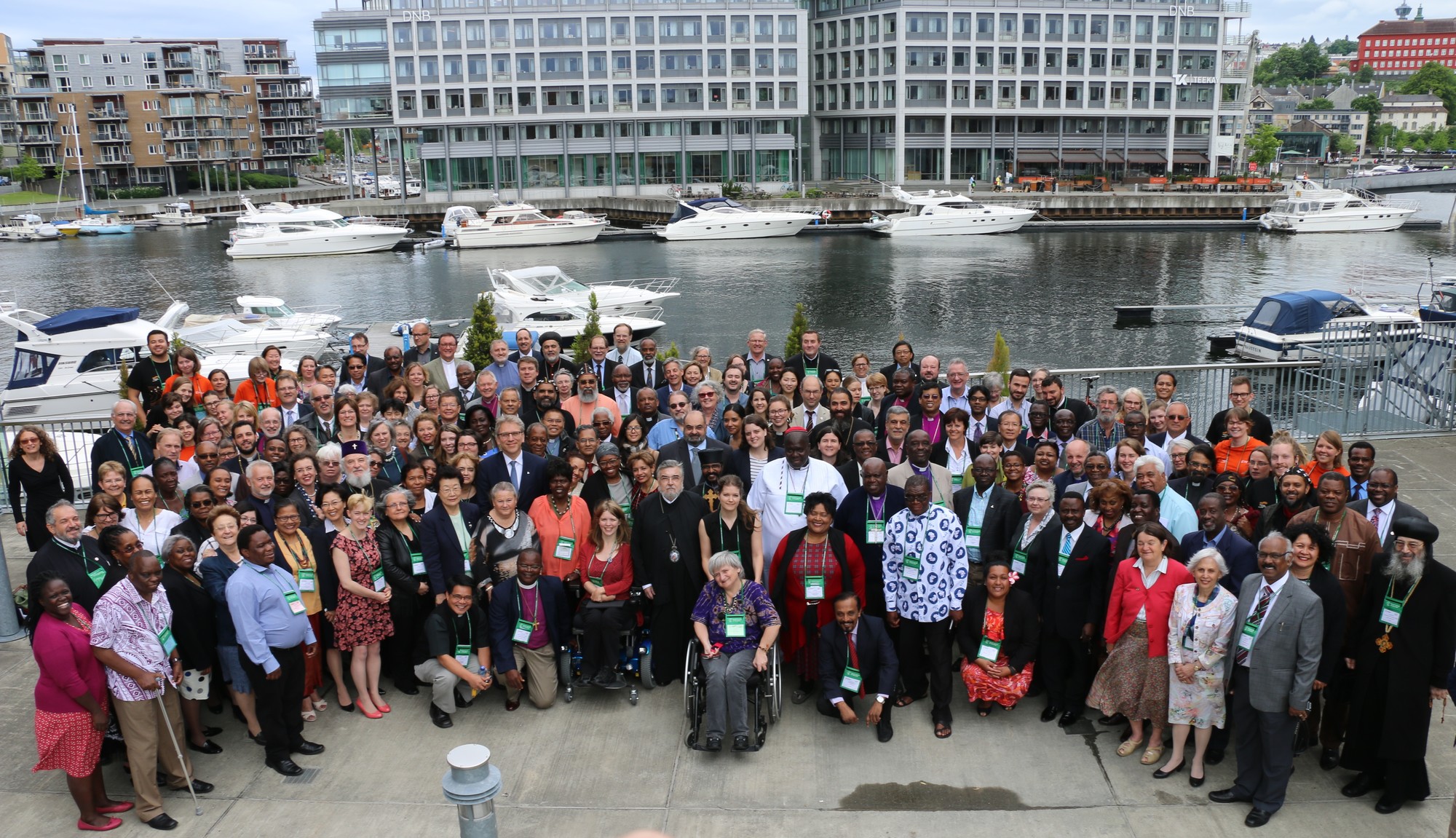
WCC’s Trondheim Central Committee meet forges decisions around Pilgrimage of Justice, Peace – Exclusive
From Our Gulf News Correspondent – OCP News Service (Exclusive) – 5/7/16
TRONDHEIM, Norway: The World Council of Churches (WCC) Central Committee which recently concluded its 2016 meeting in Trondheim, an important Christian pilgrimage site, had its theme on “Pilgrimage: Discerning the Landscapes Together.”
The week-long meeting which concluded on June 28 was the second gathering since the Central Committee was elected at the WCC 10th Assembly in Busan, South Korea in 2013. Hope in a Pilgrimage of Justice and Peace formed an integral thread for proceedings at the meeting of the Central Committee.
Among the host of issues which the Central Committee tackled included a powerful statement for peace and justice on the vexed Arab-Israeli crisis. The Committee authorized convening of an international ecumenical conference in 2017 “to reaffirm and strengthen ecumenical witness for peace with justice for Israelis and Palestinians.”
Ms Marianne Ejdersten (pictured), WCC’s, Director of Communication, the stellar Swedish lady who led several press conferences and live streams for the media, says the communication set-up for a meeting as the WCC central committee is crucial to ensuring that feedback is transparent, fast, and increases participation.
About the successful conduct, Ms Marianne says: “The focus was on obtaining news releases, feature stories, official documents and decisions published as quickly as possible to increase participation for those who were unable to attend the Central Committee.”
Explaining further she adds, “One way was to offer live streaming from the business plenaries each day. Social media activities were a complement,” she said adding that the website was the hub and seen as a digital archive which gathers all the documents together.
Church media which lapped up instant updates from the communications team took note of the enormous amount of work done by the communication managers, interpreters and translators.
As a parting shot, Marianne notes, “communicating about church activities is something above and beyond the ordinary and must be conducted with great respect for the gospel. This, however, does not prevent us from using terms and strategies from the business world. These represent a means to achieve our goal.”
Dr Agnes Abuom, from the Anglican Church of Kenya, set the tone for the meeting by urging member churches to be catalysts for change in “a rapidly changing and increasingly pluralistic world”. Abuom observed that “the pilgrimage offers us immense possibilities to re-imagine ourselves as a movement of God’s people in the mission – open and inclusive, and agile and receptive to the promptings of the spirit.”
The election of new Executive Committee members also took place in Trondheim, home to the northernmost medieval cathedral in the world. In addition, the Central Committee elected a committee to perform a midterm evaluation of its programmes and another to plan the next WCC assembly.
Rev Dr Olav Fykse Tveit, WCC General Secretary, and a pastor from the Lutheran communion and member of the Church of Norway, described the church on pilgrimage as “a people defined by hope”. He added, “This is not about generalized optimism, but instead about conveying a reason and motivation for hope.
“Often it means being able to see beyond what we see and expecting something more and something else, looking for justice and peace, and nothing less,” explained Tveit adding that, “hope is a criterion of our Christian faith.”
He cited examples mentioned in the Executive Committee’s review of activities since 2014 with the WCC’s involvement in stages of the pilgrimage such as in the Korean peninsula, Ukraine, Lebanon, Israel and Palestine, South Sudan, Burundi, Colombia, Nigeria and in cities of the United States that have experienced racial confrontation. The Central Committee chose Arusha in Tanzania (East Africa) as the venue for the next World Mission Conference to be held 8-13 March 2018. More than 700 delegates from churches worldwide are expected to gather for the event hosted by the Evangelical Lutheran Church in Tanzania.
More than 700 delegates from churches worldwide are expected to gather for the event hosted by the Evangelical Lutheran Church in Tanzania.
During the meeting, the WCC also welcomed three new member churches to the ecumenical fellowship and also admitted two others to interim membership status. The new ones are Dutch Reformed Church, Blantyre Synod of the Church of Central Africa Presbyterian (CCAP) for Malawi, and the Council of Baptist Churches in North East India (CBCNEI). The Africa Brotherhood Church, from Kenya and the Community of Baptist Churches in Central Africa (CBCA) from the Democratic Republic of Congo, entered into interim WCC membership. The meeting also elected a new executive committee with 11 new members.
Ms Linda Hofstad Helleland, Norway’s Minister of Culture, addressed the delegates of the Central Committee during the opening. The Church of Norway was the host because of its long-established commitment to global ecumenism and to the WCC.
Meeting every two years, the Central Committee has 150 representatives elected from the 348 WCC member churches. It is responsible for carrying out the policies adopted by the assembly, reviewing and supervising WCC programmes and the budget. Geneva, the headquarters of the 68-year-old global fellowship of churches, will play host to the next Central Committee in June 2018.
Source:
OCP News Service




[…] Source link […]